Paul Albert Attanasio (born November 14, 1959) is an American screenwriter and film and television producer, who was an executive producer on the television series House.
To Read More You Can Find It Here: http://en.wikipedia.org/wiki/Paul_Attanasio
Paul Albert Attanasio (born November 14, 1959) is an American screenwriter and film and television producer, who was an executive producer on the television series House.
To Read More You Can Find It Here: http://en.wikipedia.org/wiki/Paul_Attanasio
Goldman began writing screenplays in his 30s when Cliff Robertson hired him to adapt Flowers for Algernon, later retitled Charly, for which Robertson won the Academy Award for Best Actor. Robertson then hired him to do some rewriting on Masquerade, which was Goldman’s first screen credit. Goldman researched Butch Cassidy and the Sundance Kid for eight years, and used Harry Longbaugh (a variant spelling of the Sundance Kid’s real name) as his pseudonym for No Way to Treat a Lady. After deciding he did not want to write a cowboy novel, he turned the story into his first original screenplay and sold it for a record $400,000 in the late 1960s.
He wrote the screenplay for Rob Reiner’s 1990 adaptation of Stephen King’s novel Misery, considered “one of [King’s] least adaptable novels”. The movie performed well with critics and at the box office, and earned Kathy Bates an Academy Award. In their feature on Goldman, IGN said “It’s a testament to just how truly great William Goldman is at his best that I actually had to think hard about what to select as his ‘Must-See’ cinematic work”. The site described his script for All the President’s Men as a “model of storytelling clarity… and artful manipulation”. Art Kleiner, writing in 1987, said, “William Goldman, a very skilled storyteller, wrote several of the most well-known films of the past 18 years—including Marathon Man, part of All the President’s Men, and Butch Cassidy and the Sundance Kid.”
Three of Goldman’s scripts have been voted into the Writers Guild of America hall-of-fame’s 101 Greatest Screenplays list. He has won two Academy Awards: an Award for Best Original Screenplay for Butch Cassidy and the Sundance Kid, and an Award for Best Adapted Screenplayfor All the President’s Men. He has also won two Edgar Awards, from the Mystery Writers of America, for Best Motion Picture Screenplay: for Harper in 1967, and for Magic (adapted from his 1976 novel) in 1979. In 1985, he received the Laurel Award for Screenwriting Achievement from the Writers Guild of America. His other notable works include his thriller novel Marathon Man and comedy-fantasy novel The Princess Bride, both of which Goldman adapted for film.
WILLIAM GOLDMAN INTERVIEW
THE WRITER SPEAKS: WILLIAM GOLDMAN
WILLIAM GOLDMAN ON PRINCESS BRIDE
In 1972 Benton made his directorial debut with Bad Company, an iconoclastic western that starred Jeff Bridges and Barry Brown as a pair of Civil War draft dodgers who head West, robbing and stealing to support themselves. The film, which Benton wrote with Newman, exhibits touches of black humour, and cinematographer Gordon Willis, who also shot The Godfather that year, gave it a striking palette. With that modest success, Benton was able to leave Esquire and devote himself to filmmaking full time. Benton next directed The Late Show (1977) from his own screenplay about an aging private eye whose partner is killed while trying to help a quirky woman find her cat. Art Carney was impressive as Ira Wells, the gumshoe who is falling apart at the seams, and Lily Tomlin gave arguably her finest performance as his client who, much to her surprise, finds herself falling for him.
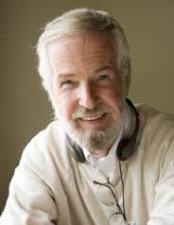
Benton’s next project was cowriting the screenplay for Superman, which was directed by Richard Donner. The critically acclaimed action film was a blockbuster. Benton returned to directing with Kramer vs. Kramer (1979), a moving adaptation (scripted by Benton) of Avery Corman’s novel about a father who must raise his young son after his wife deserts them.Dustin Hoffman scored sympathy as the father who sacrifices his job and love life to care for his son (played by Justin Henry), and Meryl Streep gave a nuanced performance as the wife whose need to “find herself” proves disastrous for those she leaves behind. In addition to being an enormous box-office hit, the film won the Academy Award for best picture, and Benton took home Oscars for best director and best screenplay adaptation. He became a much-sought-after director-writer.
Places in the Heart (1984), however, was more comfortable territory for Benton. The drama was set in his hometown of Waxahachie, Texas, during the Great Depression, and it featured Sally Field as a widow who must provide for her children by working her 40-acre cotton field with the aid of a black labourer (Danny Glover). The notable cast also included John Malkovich, Lindsay Crouse, Amy Madigan, and Ed Harris. Field earned acclaim for her performance, winning the Oscar for best actress, and Benton took home another Academy Award for his original screenplay. The film was also nominated for best picture.
In 1994 Benton directed another film adaptation, Nobody’s Fool. Paul Newman played Sully, a bone-weary, cynical handyman in a small economically depressed town in upstate New York. In Richard Russo’s best-selling novel, Sully is self-deluding; onscreen he is endearingly cranky as he interacts with his estranged son (Dylan Walsh); his landlady and former eighth-grade teacher, Miss Beryl (Jessica Tandy, who died shortly after filming was completed); Carl, a smart-aleck construction kingpin (an expert turn by an unbilled Willis); and Carl’s sexy but neglected wife (Melanie Griffith). Benton, a well-known perfectionist, admitted in an interview that he had rewritten his script at least 20 times, and he was rewarded with an Oscar nomination for adapted screenplay.
TCM FILM FEST ROBERT BENTON
ROBERT BENTON & STEVE TESICH ACCEPTING OSCARS
INTERVIEW WITH ROBERT BENTON
In 1974, Schrader and his brother Leonard cowrote The Yakuza, a film set in the Japanese crime world. The script became the subject of a bidding war, and it sold for $325,000, which was more than any other screenplay up to that time. Schrader’s script about an obsessed New York taxi driver was turned into Martin Scorsese’s film Taxi Driver, which was nominated for a 1976 Best Picture Academy Award and won the Palme d’Or at the Cannes Film Festival. Besides Taxi Driver (1976), Scorsese also drew on scripts by Schrader for boxing taleRaging Bull (1980), co-written with Mardik Martin, The Last Temptation of Christ (1988), and Bringing Out the Dead (1999). Among Paul Schrader’s films in the 1980s were American Gigolo starring Richard Gere (1980)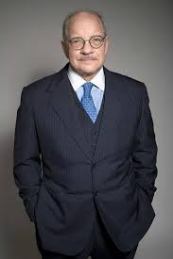
In 1998, Schrader won critical acclaim for the drama Affliction. The film was nominated for multiple awards including two Academy Awards for acting (for Nolte and James Coburn). The same year, Schrader received the Austin Film Festival’s Distinguished Screenwriter Award. In 1999, Schrader received the Laurel Award for Screenwriting Achievement from the Writers Guild of America. In 2002, he directed the acclaimed biopic Auto Focus, based on the life and murder of Hogan’s Heroes actor Bob Crane.
Schrader headed the International Jury of the 2007 Berlin International Film Festival, and in 2011 became a jury member for the ongoing Filmaka short film contest. On July 2, 2009, Schrader was awarded the inaugural Lifetime Achievement in Screenwriting award at the ScreenLit Festival in Nottingham, England. Several of his films were shown at the festival, including Mishima: A Life in Four Chapters, which followed the presentation of the award by director Shane Meadows. Schrader has written two stage plays, Berlinale and Cleopatra Club. The latter saw its premiere at the Powerhouse Theater in Poughkeepsie, New York, in 1995 and its foreign language debut in Vienna in 2011.
MODERN FILM OF SCHOOL
PAUL SCHRADER Q&A ‘THE CANYONS’ WORLD PREMIERE
PAUL SCHRADER ‘TAXI DRIVER’ INTERVIEW PART 1
Mamet is a founding member of the Atlantic Theater Company; he first gained acclaim for a trio of off-Broadway plays in 1976, The Duck Variations, Sexual Perversity in Chicago, and American Buffalo. He was awarded the Pulitzer Prize in 1984 for Glengarry Glen Ross, which received its first Broadway revival in the summer of 2005. His play Race, which opened on Broadway on December 6, 2009 and featured James Spader, David Alan Grier, Kerry Washington, andRichard Thomas in the cast, received mixed reviews. His play The Anarchist, starring Patti LuPone and Debra Winger, in her Broadway debut, opened on Broadway on November 13, 2012 in previews and is scheduled to close on December 16, 2012. Mamet’s first produced screenplay was the 1981 production of The Postman Always Rings Twice (directed by Bob Rafelson), based upon James M. Cain’s novel. He received an Academy Award nomination one year later for his first script, The Verdict, written in the late 1970s. He also wrote the screenplay for The Untouchables.

As a playwright, Mamet has won a Pulitzer Prize and received Tony nominations for Glengarry Glen Ross (1984) and Speed-the-Plow (1988). As a screenwriter, he has received Oscar nominations for The Verdict (1982) and Wag the Dog (1997). Oleanna (1994),Homicide (1991) (nominated for the Palme d’Or at 1991 Cannes Film Festival and won a “Screenwriter of the Year” award for Mamet from the London Critics Circle Film Awards and Best Cinematography for Roger Deakins from the Los Angeles Film Critics Association Awards), Things Change (1988) (which won the Volpi Cup for Best Actor at 1988 Venice Film Festival for Don Ameche and Joe Mantegna)
His feature directorial debut House of Games (1987) (which won Best Film and Best Screenplay awards at the 1987 Venice Film Festival and “Film of the Year” for the 1989 London Critics Circle Film Awards), Things Change (1988),Homicide (1991) (nominated for the Palme d’Or at 1991 Cannes Film Festival and won a “Screenwriter of the Year” award for Mamet from the London Critics Circle Film Awards and Best Cinematography from Roger Deakins from the Los Angeles Film Critics Association Awards. State and Main (2000) (Winner of a Best Acting – Ensemble award from the National Board of Review). In 2002, Mamet was inducted into the American Theatre Hall of Fame. Mamet later received the PEN/Laura Pels International Foundation for Theater Award for Grand Master of American Theater in 2010.
DAVID MARNET INTERVIEW
DAVID MAMET ON FILM
DAVID MAMET Q&A
Coppola directed in a period of nine days Dementia 13, his first feature from his own screenplay. The film recouped its expenses and later became a cult film among horror buffs. In 1965, Coppola won the annual Samuel Goldwyn Award for the best screenplay (Pilma, Pilma) written by a UCLA student. Coppola bought the rights to the David Benedictus novel You’re a Big Boy Now and fused it with a story idea of his own, resulting in You’re a Big Boy Now (1966). This was his UCLA thesis project that also received a theatrical release via Warner Bros.[16] This movie brought him some critical acclaim. His next film The Rain People in 1969. It was written, directed and initially produced by Coppola himself, though as the movie advanced, he exceeded his budget and the studio had to underwrite the remainder of the movie.[16] The film won the Golden Shell at the 1969 San Sebastian Film Festival. Coppola co-wrote the script for Patton in 1970 along with Edmund H. North. This earned him his first Academy Award for Best Original Screenplay.
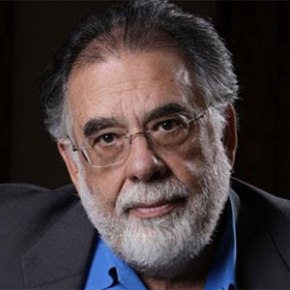
The release of The Godfather in 1972 was a milestone in cinema. The near 3-hour-long epic, which chronicled the saga of the Corleone family, received overwhelmingly positive reviews from critics and fetched Coppola the Academy Award for Best Adapted Screenplay, which he shared with Mario Puzo and two Golden Globe Awards: for Best Director and Best Screenplay. After it was released, the film received widespread praise. It went on to win multiple awards, including Academy Award for Best Adapted Screenplay for Coppola. The film routinely features at the top in various polls for the greatest movies ever. It has been selected for preservation in the United States National Film Registry. In addition, it was ranked third, behind Citizen Kane, and Casablanca on the initial AFI’s 100 Years…100 Movies list by the American Film Institute. It was moved up to second when the list was published again, in 2008. Director Stanley Kubrick believed that The Godfather was possibly the greatest movie ever made and had without question the best cast. Coppola’s next film, The Conversation, further cemented his position as one of the most talented auteurs of Hollywood. The movie was a critical success and Coppola won his first Palme d’Or at the 1974 Cannes Film Festival.
In 1990, he released the third and final chapter of The Godfather series: The Godfather Part III. Coppola successfully managed to get Al Pacino, Diane Keaton and Talia Shire to return to the franchise, but Robert Duvall refused to reprise his role as Tom Hagen over salary disagreements. While not as critically acclaimed as the first two films, it was still a box office success, earning a revenue of $136 million against a budget of $54 million. Some reviewers criticized the casting of Coppola’s daughter Sofia, who had stepped into the leading role of Mary Corleone which had been abandoned by Winona Ryder just as filming began. Despite this, The Godfather Part III went on to gather 7 Academy Award nominations, including Best Director and Best Picture. The film failed to win any of these awards, the only film in the trilogy to do so.Coppola shot The Godfather Part II. The movie was released in 1974 and went on to receive tremendous critical acclaim, with many deeming it superior to its predecessor. It was nominated for 11 Academy Awards and received 6 Oscars, including 3 for Coppola: Best Picture, Best Adapted Screenplay and Best Director. The Godfather Part II is ranked as the #1 greatest movie of all time in TV Guide’s “50 Best Movies of All Time” and is ranked at #7 on Entertainment Weekly’s list of the “100 Greatest Movies of All Time”. The film is also featured on movie critic Leonard Maltin’s list of the “100 Must-See Films of the 20th Century”, as well as Roger Ebert’s “Great Movies” list. It was also featured on Sight & Sound’s list of the ten greatest films of all time in 2002, ranking at #4. In 1984 Coppola directed the Robert Evans-produced The Cotton Club. The film was nominated for several awards, including Golden Globes for Best Director and Best Picture (Drama) and the Oscar for Best Film Editing. However the film failed miserably at the box-office, recouping only $25.9 million of the $47.9 million privately invested by brothers Fred and Ed Doumani.
In 1992, Coppola directed and produced Bram Stoker’s Dracula. Adapted from Bram Stoker’s novel, it was intended to be more faithful to the book than previous film adaptations. Coppola cast Gary Oldman in the film’s title role, with Keanu Reeves, Winona Ryder and Anthony Hopkins in supporting roles. The movie became a box-office hit, grossing $82,522,790 domestically, making it the 15th highest-grossing film of the year. It fared much better overseas grossing $133,339,902 for a total worldwide gross of $215,862,692 against a budget of $40 million, making it the 9th highest grossing film of the year worldwide. The film won Academy Awards for Costume Design, Makeup andSound Editing.
FRANCIS FORD COPPOLA INTERVIEW
A LOOK INSIDE THE ‘GODFATHER’
ADVICE FROM FRANCIS FORD COPPOLA
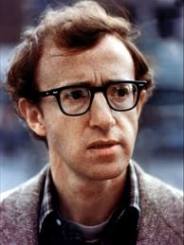
Allen directed, starred in, and co-wrote (with Mickey Rose) Take the Money and Run in 1969, which received positive reviews. He later signed a deal with United Artists to produce several films. Those films eventually became Bananas (1971, co-written with Rose), Everything You Always Wanted to Know About Sex (1972), Sleeper (1973), and Love and Death (1975). Sleeper was the first of four films where the screenplay was co-written by Allen and Marshall Brickman. Annie Hall won four Academy Awards in 1977, including Best Picture,Best Actress in a Leading Role for Diane Keaton, Best Original Screenplay and Best Director for Woody Allen. The film is ranked at No. 35 on the American Film Institute’s “100 Best Movies” and at No. 4 on the AFI list of “100 Best Comedies.”
Manhattan, released in 1979, is a black-and-white film often viewed as an homage to New York City. The Purple Rose of Cairo was named by Time as one of the 100 best films of all time and Allen described it as one of his three best films, along with Stardust Memories and Match Point. (Allen defines them as “best” not in terms of quality but because they came closest to his vision.) In 1989, Allen teamed with directors Francis Ford Coppola and Martin Scorsese to make New York Stories, an anthology film about New Yorkers. Allen’s short,Oedipus Wrecks, is about a neurotic lawyer and his critical mother. His short pleased critics, but New York Stories bombed at the box office. Allen then made his critically acclaimed drama Husbands and Wives (1992), which received two Oscar nominations: Best Supporting Actress for Judy Davis and Best Original Screenplay for Allen.
He returned to lighter movies like Bullets Over Broadway (1994), which earned an Academy Award nomination for Best Director. The comedy Mighty Aphrodite (1995), in which Greek drama plays a large role, won an Academy Award for Mira Sorvino. Allen’s 1999 jazz-based comedy-dramaSweet and Lowdown was nominated for two Academy Awards for Sean Penn (Best Actor) and Samantha Morton (Best Supporting Actress). Allen was elected a Fellow of the American Academy of Arts and Sciences in 2001.
Match Point (2005) was one of Allen’s most successful films of the decade, garnering positive reviews Match Point earned Allen his first Academy Award nomination since 1998, for Best Writing – Original Screenplay with directing and writing nominations at the Golden Globes, his first Globe nominations since 1987. In an interview with Premiere Magazine, Allen stated this was the best film he has ever made. He reached an agreement to film Vicky Cristina Barcelonain Avilés, Barcelona and Oviedo, where shooting started on July 9, 2007. was well received, winning “Best Musical or Comedy” at the Golden Globe awards. Penélope Cruz received the Academy Award for Best Supporting Actress for her role in the film.
Allen announced that his next film would be titled Midnight in Paris. Critically acclaimed, the film was considered by some a mark for his return to form.[61] Midnight in Paris won the Academy Award for Best Original Screenplay. Blue Jasmine received praise from the critics, particularly for Blanchett’s performance; additionally, they compared the film to Tennessee Williams’ play A Streetcar Named Desire. It was a box office success, earning $94.8 million worldwide against a budget of $18 million. Blanchett won the Academy Award for Best Actress, and the film received two more nominations—Best Supporting Actress for Sally Hawkins, and Original Screenplay for Allen. It was also awarded the Golden Globe Award for Best Actress in a Motion Picture – Drama, the Screen Actors Guild Award for Outstanding Performance by a Female Actor in a Leading Role, and the BAFTA Award for Best Actress in a Leading Role.
Allen won the 1978 O. Henry Award for his short story The Kugelmass Episode, published in The New Yorker on May 2, 1977. At the 1995 Venice Film Festival, Allen received a Career Golden Lion for lifetime achievement. In 2002, Allen won the Prince of Asturias Award. Subsequently, the city of Oviedo, Spain, erected a life-size statue of Allen.
TIME INTERVIEWS WOODY ALLEN
12 QUESTIONS FOR WOODY ALLEN
WOODY ALLEN ‘BLUE JASMINE’ INTERVIEW
In 1979, Stone won his first Academy Award, after adapting true-life jail tale Midnight Express into a hit film for British director Alan Parker. Stone wrote further features, including Al Pacino’s drug lord tale Scarface and Year of the Dragon with Mickey Rourke, before his career took off as a writer-director in 1986. In 1986, Stone directed two films back to back: the critically acclaimed but commercially unsuccessful Salvador, shot largely in Mexico, and his long in development Vietnam project Platoon, shot in the Philippines. Stone loosely based Scarface on his own addiction to cocaine, which he successfully kicked while writing the screenplay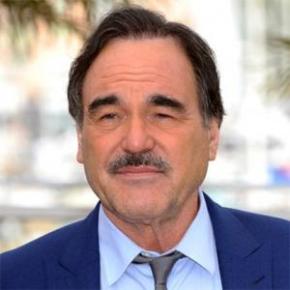
Platoon won many rave reviews (Roger Ebert later called it the ninth best film of the 1980s), large audiences, and Academy Awards for Best Picture and Best Director. In 2007, a film industry vote ranked it at number 83 in an American Film Institute “AFI’s 100 Years… 100 Movies” poll of the previous century’s best American movies. British TV channel Channel 4 voted Platoon as the sixth greatest war film ever made.
Stone also directed the acclaimed Wall Street, which won Michael Douglas an Academy Award for Best Actor as a ruthless Wall Street corporate raider, and Talk Radio, based on Eric Bogosian’s Pulitzer-nominated play. During this same period, Stone directed one of his most ambitious, controversial and successful films to date, JFK, that depicts the assassination of John F. Kennedy on November 22, 1963. In 1991, Stone showed JFK to Congress on Capitol Hill, which helped lead to passage of the Assassination Materials Disclosure Act of 1992.
1994 saw the release of Stone’s satire of the modern media, Natural Born Killers. Originally based on a screenplay by Quentin Tarantino, critics recognized its portrayal of violence and the intended satire on the media. Stone went on to direct the 1995 Richard Nixon biopic Nixon, which was nominated for Oscars for script and Anthony Hopkins’ portrait of the title role.
Stone has received three Academy Awards for his work on the films Midnight Express, Platoon, and Born on the Fourth of July. He was presented with the Extraordinary Contribution to Filmmaking Award at the 2007 Austin Film Festival. In 2008, Stone was named the Artistic Director of New York University’s Tisch School of the Arts Asia in Singapore.
HISTORY OF OLIVER STONE
OLIVER STONE’S UNTOLD HISTORY
OLIVER STONE ON 50th ANNIVERSARY OF JFK ASSASSINATION
Wilder’s first significant success was Ninotchka in 1939. This screwball comedy starred Greta Garbo (generally known as a tragic heroine in film melodramas), and was popularly and critically acclaimed. With the byline, “Garbo Laughs!”, it also took Garbo’s career in a new direction. The film also marked Wilder’s first Academy Award nomination, which he shared with co-writer Charles Brackett (although their collaboration on Bluebeard’s Eighth Wife and Midnight had been well received).
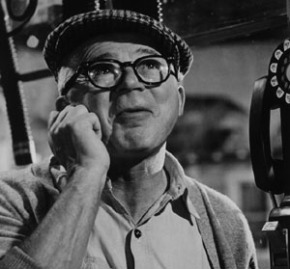
Two years later, Wilder earned the Best Director and Best Screenplay Academy Awards for the adaptation of a Charles R. Jackson story The Lost Weekend (1945). In 1950, Wilder co-wrote and directed the dark and cynical Sunset Boulevard. It was critically acclaimed. Wilder followed Sunset Boulevard with Ace in the Hole (a.k.a. The Big Carnival), a tale of media exploitation of a caving accident. Although a critical and commercial failure at the time, its reputation has grown over the years.n as a tragic heroine in film melodramas), and was popularly and critically acclaimed. With the byline, “Garbo Laughs!”, it also took Garbo’s career in a new direction. The film also marked Wilder’s first Academy Award nomination. His third film as director, Double Indemnity (1944) was a major hit. A film noir, nominated for Best Director and Screenplay. Double Indemnity is credited by some as the first true film noir, combining the stylistic elements of Citizen Kane with the narrative elements of The Maltese Falcon (1941).
In the fifties, Wilder also directed two adaptations of Broadway plays, the prisoner of war drama Stalag 17 (1953), which resulted in a Best Actor Oscar for William Holden. Among the classics Wilder created in this period are the farce The Seven Year Itch (1955) and Some Like It Hot (1959), satires such as The Apartment (1960), and the romantic comedy Sabrina (1954).
Wilder is one of only five people to have won Academy Awards as producer, director and screenwriter for the same film (The Apartment). He directed fourteen different actors in Oscar-nominated performances. Wilder was recognized with the American Film Institute (AFI) Life Achievement Award in 1986. In 1988, Wilder was awarded the Irving G. Thalberg Memorial Award. In 1993, he was awarded the National Medal of Arts. He is responsible for two of the film noir era’s most definitive films in Double Indemnity and Sunset Boulevard. Along with Woody Allen and the Marx Brothers, he leads the list of films on the American Film Institute’s list of 100 funniest American films with 5 films written and holds the honor of holding the top spot with Some Like it Hot. Also on the list are The Apartment and The Seven Year Itch which he directed, and Ball of Fire and Ninotchka which he co-wrote. The American Film Institute has ranked four of Wilder’s films among their top 100 American films of the 20th century: Sunset Boulevard (no. 12), Some Like It Hot (no. 14), Double Indemnity (no. 38) and The Apartment (no. 93). For the tenth anniversary edition of their list, the AFI moved Sunset Blvd. to No. 16, Some Like it Hot to No. 22, Double Indemnity to No. 29 and The Apartment to No. 80.s The Seven Year Itch (1955) andSome Like It Hot (1959), satires such as The Apartment (1960), and the romantic comedy Sabrina (1954).After winning three Academy Awards for 1960’s The Apartment (for Best Picture, Director, and Screenplay). Wilder gained his last Oscar nomination for his screenplay The Fortune Cookie
BILLY WILDER SPEAKS PART 1
THE WRITER SPEAKS: BILLY WILDER
BILLY WILDER ON WRITING
Ben Hecht began his career at the beginning of the sound era by writing the story for Josef von Sternberg’s gangster movie Underworld in 1927. For that first screenplay and story he won an Academy Award for Best Original Screenplay in Hollywood’s first Academy award ceremony. Soon afterward, he became the highest paid screenwriter in Hollywood. He took no credit for Underworld but in the end he relented and took credit for the film’s story, which went on to win the Academy Award for Best Original Screenplay – the first year the awards were presented.
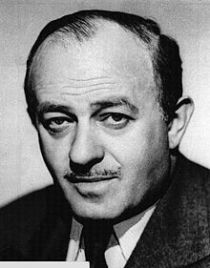
He also wrote The Front Page. It was widely acclaimed and had a successful run on Broadway of 281 performances, beginning August,1928. In 1931 it was turned into a successful film, which was nominated for three Oscars
Scarface was directed by Howard Hawks, with “Hecht the wordsmith and Hawks the engineer…” who became “one o
f the few directors with whom Hecht enjoyed working.” It starred Paul Muni playing the role of an Al Capone-like gangster. “Scarface’s all-
In 1954 Hecht published his autobiography, A Child of the Century, which, according to literary critic Robert Schmuhl, “received such extensive critical acclaim that his literary reputation improved markedly during the last decade of his life. He has been credited with ghostwriting books, including Marilyn Monroe’s autobiography My Story.but-suffocating vitality is a kind of cinematic ve
rsion of tabloid prose at its best.”
Gunga Din was co-written with Charles MacArthur and became “one of Hollywood’s greatest action-adventure films.” The screenplay was based on the poem by Rudyard Kipling, directed by George Stevens and starred Cary Grant and Douglas Fair
banks, Jr. In 1999 the film was deemed “culturally significant” by the United States Library of Congress.
His entire life span includes: He was the first screenwriter to receive an Academy Award for Original Screenplay, for the movie Underworld (1927). The number of screenplays he wrote or worked on that are now considered classics is, according to Chicago’s Newberry Library, “astounding,” and included films such as, Scarface (1932), The Front Page, Twentieth Century (1934), Barbary Coast (1935), Nothing Sacred (1937), Some Like It Hot, Gone with the Wind, Gunga Din, Wuthering Heights, (all 1939), His Girl Friday (1940), Spellbound (1945), Notorious (1946), Monkey Business, A Farewell to Arms (1957), Mutiny on the Bounty (1962), and Casino Royale (released posthumously, in 1967). He also provided story ideas for such films as Stagecoach (1939). In 1940, he wrote, produced, and directed, Angels Over Broadway, which was nominated for Best Screenplay. In total, six of his movie screenplays were nominated for Academy Awards, with two winning.
BEN HECHT QUOTES
BEN HECHT INTERVIEW PART 1
BEN HECHT INTERVIEW PART 2